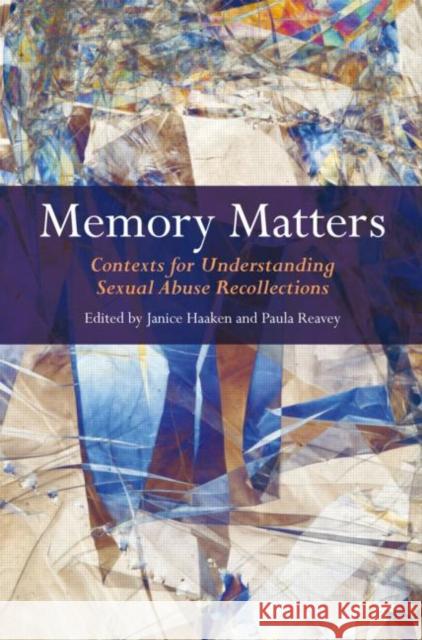Memory Matters: Contexts for Understanding Sexual Abuse Recollections » książka
Memory Matters: Contexts for Understanding Sexual Abuse Recollections
ISBN-13: 9780415444910 / Angielski / Twarda / 2009 / 248 str.
Memory Matters: Contexts for Understanding Sexual Abuse Recollections
ISBN-13: 9780415444910 / Angielski / Twarda / 2009 / 248 str.
(netto: 718,58 VAT: 5%)
Najniższa cena z 30 dni: 654,86
ok. 16-18 dni roboczych.
Darmowa dostawa!
This book is grounded in the debates of the 1980s and 1990s that surrounded recollections of childhood sexual abuse, particularly those that emerged in the context of psychotherapy. When growing numbers of therapists claimed that they were recovering deeply repressed memories of early sexual violations in their female clients, a wave of alarmed critics countered that therapists were implanting the very memories they were discovering. In looking back at this volatile and heated controversy, Memory Matters takes up disturbing questions that linger concerning memory, sexuality, and childhood. Beginning with a re-analysis of cases from the recovered memory era, the volume goes on to offer fresh perspectives on recollections of childhood sexual abuse. Informed by feminist and critical perspectives within psychology, contributing authors introduce examples from their own qualitative research on processes of remembering. They offer rich examples from a wide range of applied settings, from the courts, psychotherapy, institutions for the disabled, to self-help groups and the media. A shared set of questions is addressed by each of the authors to create a dialogue with the reader on recurring motifs. Memory Matters is an ideal resource for advanced undergraduate and postgraduate students in the social sciences and legal studies, as well as practitioners in the fields of mental health, crisis services, and the law. Scholarly and accessible in tone, the book also offers helpful insights for professionals working with childhood memory.
This book is grounded in the debates of the 1980s and 90s that surrounded recollections of childhood sexual abuse, particularly those that emerged in the context of psychotherapy. In looking back on the volatile and heated recovered memory debate, Memory Matters takes up a set of questions about memory, sexuality, and childhood that still linger.
In this volume, the editors make use of current memory scholarship to explore the set of ethical, moral and cultural issues that continue to shape the ways in which memory is conceived in a range of scientific, therapeutic and legal settings. The contributing authors explain how our understanding of memory operates through these diverse sets of practice using key theories to underpin the recovered/false memory debate, alongside critical perspectives on memory within the social sciences.
The shared set of questions addressed by the authors creates a dialogue with the reader as well as touchstones for returning to recurring questions. Memory Matters is therefore an ideal resource for advanced undergraduate and postgraduate students in the social sciences and legal studies, as well as practitioners in the fields of mental health, crisis services, and the law. The book should be of particular interest to professionals working with children and adults who have been sexually abused or where claims of sexual abuse have not yet been settled.











